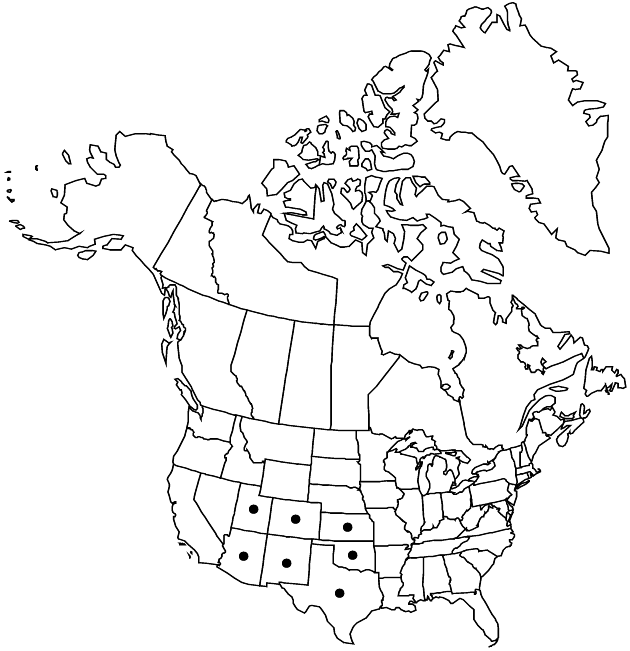Baccharis wrightii
Smithsonian Contr. Knowl. 3(5): 101. 1852.
Subshrubs or shrubs, 10–80 cm (much branched from woody caudices, aerial stems sometimes dying back). Stems erect and slender or short and branched, prominently striate-angled, glabrous, eglandular. Leaves (reduced) proximal often withered and absent at flowering; sessile; blades oblanceolate to narrowly oblong, 5–10(–25) × 1–3(–7) mm (thin), bases narrowed, margins entire or finely serrate (teeth aristate), faces eglandular, not resinous (distal reduced to linear or oblong scales). Heads usually borne singly (terminal on slender branches). Involucres broadly campanulate to hemispheric; staminate 5–9 mm, pistillate 9–14 mm. Phyllaries narrowly lanceolate, 2–6 mm (not keeled), medians green or brown, margins scarious, apices acute or acuminate (erose, abaxial faces glabrous, eglandular). Staminate florets 20–30; corollas 4.5–6 mm. Pistillate florets 20–30; corollas 3–5 mm. Cypselae 3–5 mm, strongly 5–10-nerved, papillose-roughened, glandular; pappi 15–20 mm (often brownish). 2n = 18.
Phenology: Flowering Apr–Jul.
Habitat: Dry sandy plains
Elevation: 500–2000 m
Distribution

Ariz., Colo., Kans., N.Mex., Okla., Tex., Utah, Mexico (Chihuahua, Durango, Sonora).
Discussion
Baccharis wrightii is recognized by its bushy, broomlike habit, stems woody only at bases, relatively small, non gland-dotted leaves, early flowering period, heads borne singly, conspicuous, brownish pistillate pappi, and relatively large, strongly nerved cypselae.
Selected References
None.